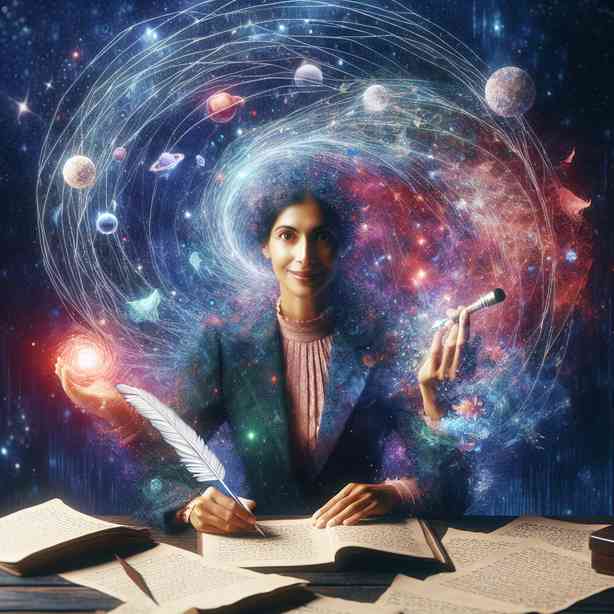
The concept of an author who understands you even before you fully comprehend yourself is a fascinating and profound idea. This notion transcends the boundaries of conventional writing, weaving a deeper connection between the reader and the author. Imagine someone who, with remarkable insight, crafts narratives that resonate with your innermost thoughts, feelings, and experiences, almost as though they are in tune with your very soul. In this exploration, we will delve into the various dimensions of this unique relationship between authors and readers, examining how literature can provide understanding, validation, and companionship.
To begin, it is essential to recognize that literature is more than a mere arrangement of words; it is a window into the human experience. Authors often draw from their own lives, emotions, and observations, pouring their essence into their writings. As readers, we find ourselves immersed in these worlds, often stumbling upon truths about ourselves that we were not consciously aware of previously. This uncanny ability of authors to articulate complex emotions or thoughts allows us to feel seen and understood in a very profound way.
Consider the works of classic authors like Leo Tolstoy or Jane Austen. Their narratives are filled with rich, nuanced characters navigating the intricacies of life. Through their experiences, we may recognize our struggles with love, loss, ambition, and identity. As we read their words, we may find reflections of our own lives—something that evokes a sense of kinship and connection. It’s as if these authors were able to peer into our hearts and express the inexpressible, making us feel less alone in our journeys.
Moreover, contemporary authors, such as Chimamanda Ngozi Adichie or Haruki Murakami, continue this tradition by weaving together narratives that explore universal themes in innovative ways. Their diverse perspectives cause us to confront and reflect on our personal narratives, prompting self-discovery. Through their storytelling, we may uncover hidden desires, fears, and aspirations that reside within us, often leading to significant personal growth. It’s a beautiful reminder that literature can be a vehicle for introspection and enlightenment.
Another intriguing aspect of this author-reader connection is the role of empathy. Through literature, we are transported into the minds and experiences of others, allowing us to develop a deeper understanding of different cultures, backgrounds, and perspectives. When an author writes about experiences that might be vastly different from our own, they invite us to step into someone else’s shoes, fostering compassion and broadening our worldview. This act of sharing stories creates a bond between the reader and the author, as well as amongst readers themselves.
For instance, in the realm of marginalized voices and narratives, authors who share their personal truths can illuminate societal issues and injustices that readers may be unaware of. By bringing these stories to life, they encourage us to listen, learn, and engage with the world around us more thoughtfully. This not only validates the experiences of those who feel unheard but also prompts a collective awareness, creating a community of readers who are united through the power of storytelling.
Additionally, let us not overlook the therapeutic aspect of literature. Many readers turn to books as a source of solace and escape during challenging times. An author who understands your struggles can provide comfort through their words, almost as if they are holding your hand during a difficult journey. This sense of companionship is invaluable; it reinforces the idea that, despite our individual circumstances, we are all linked by our shared humanity.
Self-help books, memoirs, and narratives that focus on personal growth and healing often resonate deeply with readers who may be navigating their life challenges. They offer strategies, perspectives, and stories of triumph that can inspire change and help us confront our demons. In such cases, the author’s role transforms from mere storyteller to a guiding figure who has bravely traversed the path we find ourselves on, offering a light in the darkness.
Ultimately, the magic of the author who knew you before you did lies in their ability to create a narrative tapestry that reflects the intricacies of the human experience. Through their words, they foster a connection that transcends time and distance, inviting readers to explore the depths of their own consciousness. This is where the real beauty of literature lies—in its power to inspire personal revelations and growth.
As we conclude this exploration, it becomes evident that the relationship between authors and readers is a nuance-filled journey of discovery. An author who captures your essence through their writing can illuminate facets of your character and experiences, leading to profound self-reflection and understanding. They help outline the narrative of your life, allowing you to see the larger picture of your existence. In a world that often feels isolating, such insightful connections with literature remind us that we are not alone; our thoughts, feelings, and experiences are part of a larger human narrative.
So, as you embark on your reading journey, remember to seek out those authors who resonate with your soul. Allow their words to guide you, challenge you, and ultimately, help you understand yourself in ways you never thought possible. Through the lens of literature, we can come to terms with our own identities—embracing our complexities while finding solace in the common threads that bind us all together. It is this magical interplay between reader and author that fosters the timeless bond of understanding, ultimately leading to both personal transformation and collective empathy. Opening a book then becomes an act of rediscovery, an exploration of not just another’s world but, indeed, your own.


